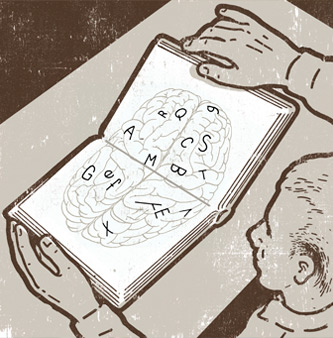Project PEAK: Getting Parents' Attention about ADHD
In a typical classroom of energetic kindergartners, up to three or more students may have attention deficit hyperactivity disorder (ADHD), a condition that will hinder their success with schoolwork and friendships. According to the Centers for Disease Control and Prevention, less than half of those affected children will have received the behavioral therapy they needed before entering kindergarten.
"ADHD is a chronic neurodevelopmental disorder that typically begins early in life and is associated with substantial educational and psychological impairment over the life span," says George DuPaul, professor of School Psychology. "Without treatment, many of these children enter kindergarten behind their peers, both academically and behaviorally."
A big part of the treatment plan for those ages 3 to 5, he says, rests with the children's parents.
To help parents, DuPaul and fellow professor Lee Kern developed Project PEAK (Promoting Engagement with ADHD Pre-Kindergartners), a face-to-face educational training program for parents of young children with ADHD. To increase parent engagement, DuPaul, Kern and their team are working on PEAK's second phase, allowing parents to complete online sessions without schedule or transportation restrictions.
"The web-based program includes 10 one-and-a-half-to- two-hour sessions focused on parent understanding of child behavior, implementation of various behavioral strategies and support for early reading and math," DuPaul says.
Parents view a PowerPoint presentation, watch example videos and respond to online questions. "For example," he says, "we teach parents to ask their children questions as they read stories to them."
Between sessions, a member of the Project PEAK research team contacts the parents to answer questions and troubleshoot treatment implementation.
So far, with the help of funding from the Institute of Education Sciences (IES), the team has worked with 19 families during the treatment development phase to help make the program feasible, engaging and effective. It now plans to work with an additional 30 to 35 families over the next 18 months to examine the relative effects of face-to-face vs. web-based training.
"Ultimately, our hope is that early identification and intervention will ease the negative impact of [pre-kindergartners'] ADHD symptoms and support families in helping their children enter elementary school ready to succeed," DuPaul says.
Interested in a screening? Go to lehigh.edu/projectpeak
Story by Elizabeth Shimer Bowers
Posted on:



